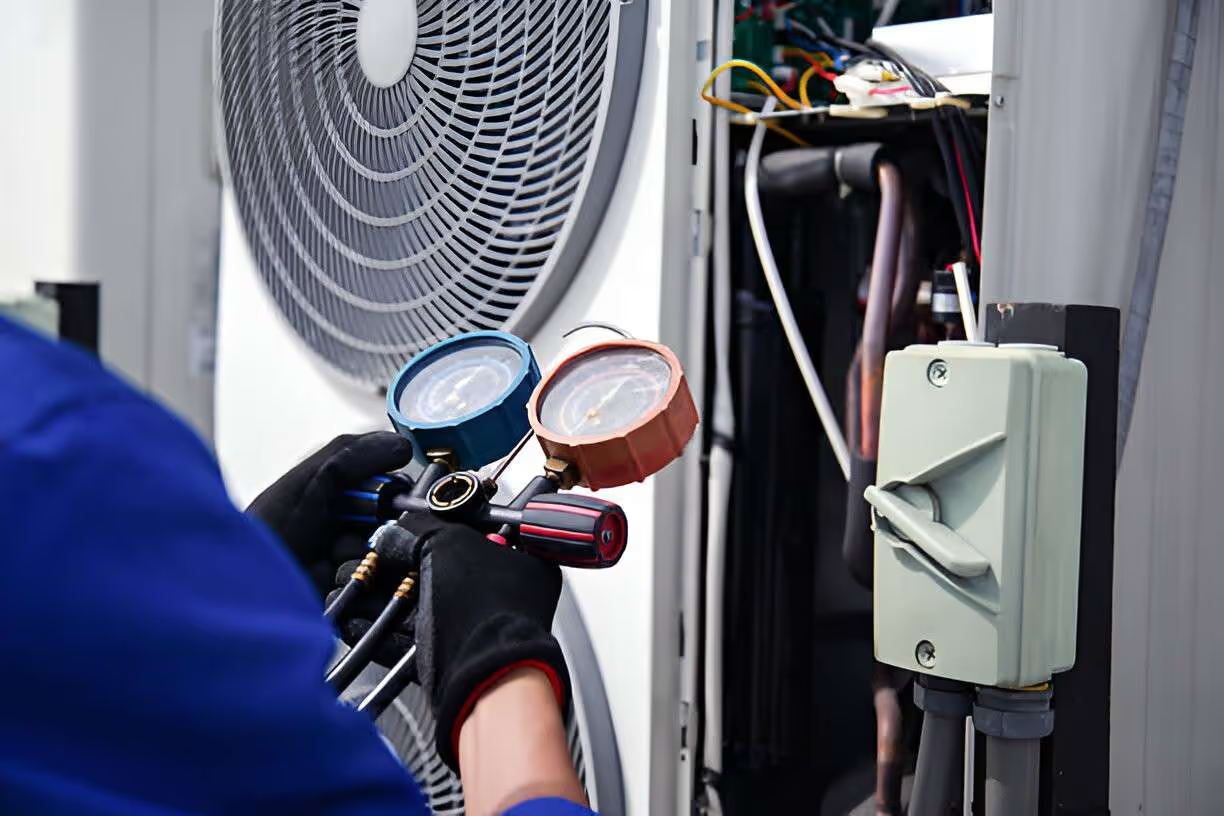AC Tune-Up in Lake Wales, FL


Why a Tune-Up Matters in Lake Wales, FL
Lake Wales homes face a cooling season that is longer and more demanding than in many parts of the country. High humidity increases the workload on indoor coils and condensate lines, causing mold, buildup, and clogging. Intense summer temperatures amplify the risk of compressor stress and electrical component failures. Regular tune-ups reduce the chance of mid-summer emergency repairs, lower your energy bills, and help keep indoor air quality healthy despite seasonal pollen and humidity.
Common AC Problems in Lake Wales, FL
- Reduced cooling capacity or uneven cooling in different rooms
- Frozen evaporator coils caused by restricted airflow or low refrigerant
- Clogged condensate drain lines and overflowing drain pans leading to water damage or mold
- High energy bills from dirty coils, improper refrigerant levels, or failing components
- Short cycling or frequent on/off cycles due to electrical or thermostat issues
- Noisy operation from loose parts, failing motors, or worn bearings
- Refrigerant leaks or legacy R-22 systems needing attention because of limited availability
What a Seasonal AC Tune-Up Includes
A professional tune-up is a systematic inspection and maintenance visit that addresses performance, safety, and longevity. Typical tasks performed during a tune-up in Lake Wales, FL include:
- System inspection
Visual and functional inspection of indoor and outdoor units
Check electrical connections, capacitors, contactors, and wiring for signs of wear
Inspect air handler, blower assembly, and ductwork for obvious issues - Cleaning coils and condensate lines
Remove debris and clean condenser and evaporator coils to restore heat transfer
Flush or clear condensate drain lines and pans to prevent backups and mold growth - Airflow checks and filter replacement guidance
Verify proper airflow across coil and inspect/recommend the correct filter type and schedule - Lubrication
Lubricate motors, bearings, and moving parts where applicable to reduce wear and noise - Thermostat calibration and control checks
Confirm thermostat accuracy and proper cycle settings for efficient, comfortable operation - Refrigerant verification
Check refrigerant charge and pressures; identify possible leaks or undercharging that reduce efficiency - Safety checks
Test safety switches, float switches, high/low pressure cutouts, and grounding to ensure safe operation - Performance measurements
Measure temperature split, system run times, and basic electrical metrics to document baseline performance
What to Expect During the Service
A typical tune-up takes about 60 to 120 minutes depending on system age and condition. The technician will arrive prepared to inspect both the outdoor condenser and indoor air handler. You can expect:
- A walk-through of the process and findings in plain language
- A documented list of tasks completed and any parts that need future attention
- Clear explanation of any safety issues or reasons to plan a repair or replacement
Expected Performance Improvements
After a thorough tune-up you should notice:
- More consistent, even cooling throughout your home
- Lower energy use and reduced cooling costs due to cleaner coils and proper refrigerant levels
- Fewer unexpected breakdowns or emergency repairs during peak heat
- Quieter operation as loose or worn components are addressed and lubricated
- Better humidity control and improved indoor air quality when condensate and coils are cleaned
Recommended Frequency for Lake Wales Homes
- Central air conditioners (cooling-only systems): Annual tune-up, scheduled in spring before the cooling season begins
- Heat pump systems (used for both cooling and heating): Twice yearly (spring and fall) because heat pumps operate year-round in Florida climates
- Older systems, units with heavy run times, or homes with pets and high pollen: Consider semi-annual checks or an annual plus a mid-season visual inspection
Pre-Summer and Pre-Winter Scheduling Tips
- Schedule early: Book your spring tune-up in March or early April to beat the summer rush and ensure your system is ready before peak temperatures. Technicians are busiest during heat waves, so early scheduling avoids delays.
- Consider timing after storms: Heavy rainstorms can flood or partially submerge outdoor units or introduce debris. If your area experienced flooding or wind damage, schedule a post-storm inspection.
- For heat pumps: Schedule a fall check to verify heating mode and a spring check before heavy cooling begins.
- Morning appointments can be advantageous when technicians test the system under controlled starting conditions, but professionals will evaluate performance across a full cycle regardless of appointment time.
Simple Homeowner Maintenance Between Tune-Ups
- Change or check filters monthly during heavy use months to maintain airflow and efficiency
- Keep at least 2 to 3 feet of clearance around the outdoor unit; remove leaves, lawn clippings, and other debris
- Periodically inspect the outdoor unit for standing water, leaning, or obvious damage after storms
- Run the system briefly before the hot season to notice unusual noises or poor cycling that indicate a need for service
Final Notes on Value and Longevity
Regular AC tune-ups in Lake Wales, FL are an investment in comfort, safety, and system life. Preventive maintenance reduces the risk of costly mid-summer failures, improves energy efficiency in a climate with long cooling demands, and helps protect indoor air quality in a humid environment. Properly maintained equipment operates closer to original performance specifications, delays the need for premature replacement, and delivers more reliable comfort when inland Florida heat and humidity peak.
Service Areas


